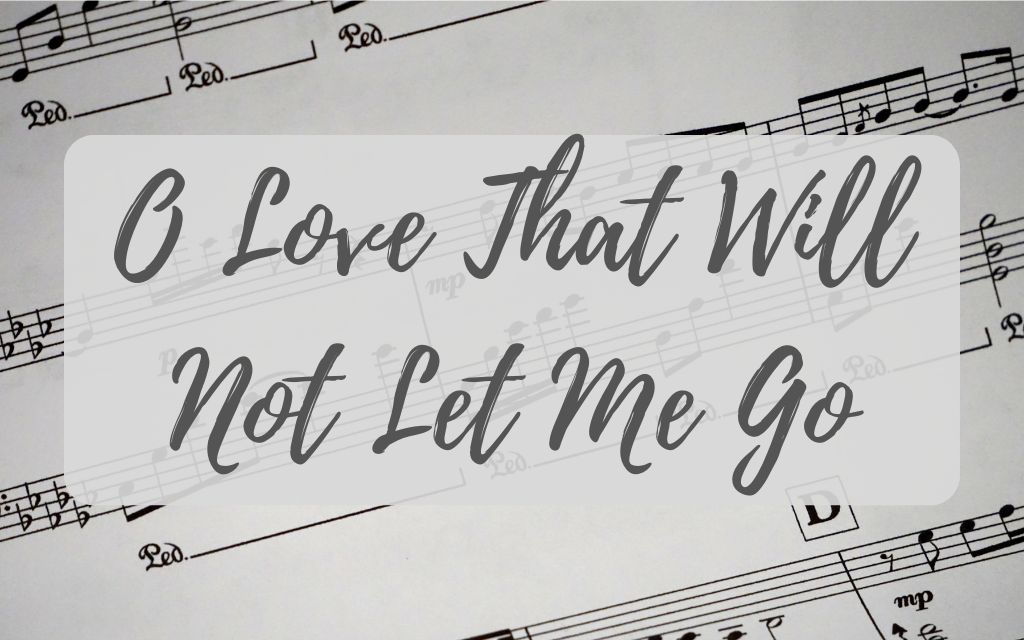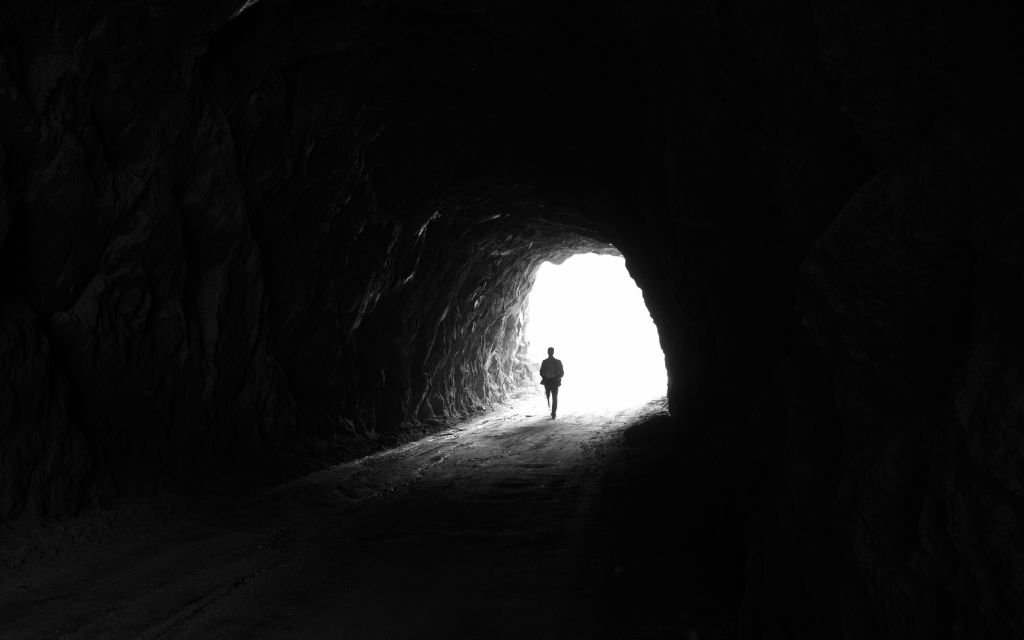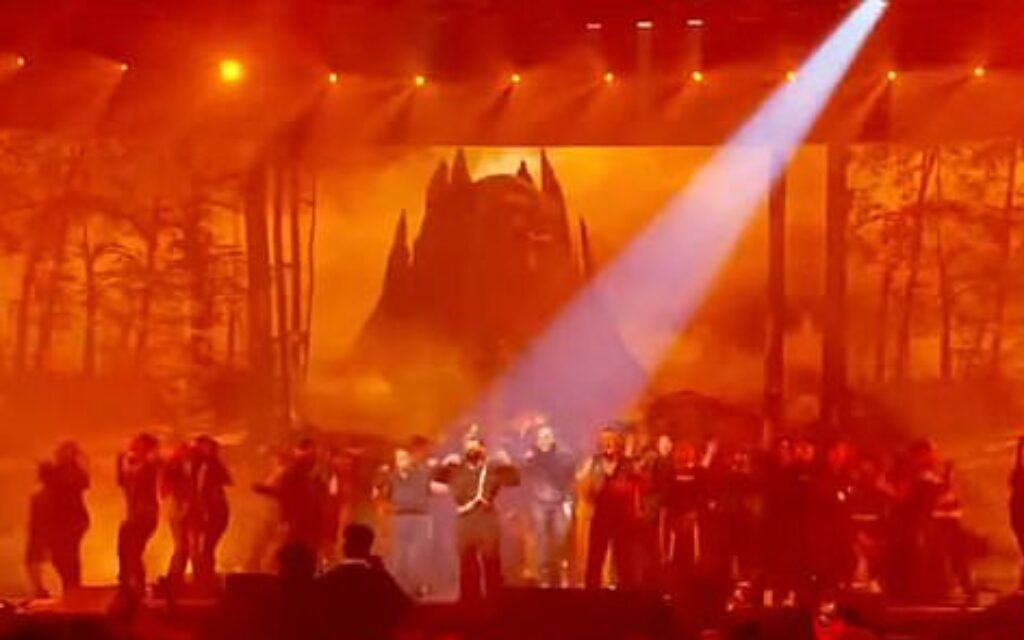Today is the 504th anniversary of the Protestant Reformation. Five hundred and four years ago, Martin Luther, in God’s providence, nailed 95 theses to a door and unwittingly began a movement that changed Christianity forever. This day is significant because I was born and reared in the Roman Catholic Church.
Though I wasn’t as devout as my mother or eldest sister, being a Roman Catholic was core to my identity. Hence, when God graciously saved me through a protestant Bible study, I resisted leaving the RCC.
I wanted to attend protestant churches but couldn’t bear to abandon my family’s tradition. So, I didn’t get baptized as a new believer; I continued observing catholic rites like Ash Wednesday and attended mass on Easter and Christmas. I even thought I would participate in Sunday morning protestant service and Sunday/Saturday evening mass. This brilliant initiative lasted about a week.
But to my surprise and my family’s dismay, I eventually left the RCC for good. Once I began reading and studying God’s Word, I noticed inconsistencies between Scripture and the Catholic Catechism. I told myself I would leave the RCC if I found ten inconsistencies, but I never finished that list. The more I searched the Scriptures and learned about God, the less interested I became in the RCC or defending it. Then one day, I realized with shouts of joy that my link to the Roman Catholic Church was severed. I no longer considered myself Catholic and didn’t feel a twinge of guilt about it. I was blissfully free!
Over the years, I have thought about completing that list to see if I could find ten heresies of the Roman Catholic Church (I had formally written down three). So for Reformation Day, I finally decided to finish my list. And here are ten reasons why I left the Roman Catholic Church and will never return.
1. Work-based salvation
First and foremost, the Roman Catholic Church doesn’t teach the biblical gospel but a work-based gospel. Whereas the Bible says we are saved by grace through faith alone (Ephesians 2:8-9), Roman Catholicism says we are justified by faith plus the sacraments.
There are seven sacraments in Roman Catholic teaching: Baptism, Holy Communion or Eucharist, Confirmation, Penance, Anointing of the Sick, Holy Orders, and Matrimony. These sacraments are not just symbolic but actually confer grace. Their catechism says, “the sacraments confer the grace that they signify. They are efficacious because in them Christ Himself is at work.”
The Bible never mentions the seven sacraments or their necessity for salvation. We are saved by grace alone through faith alone in Christ alone. Moreover, the Bible only speaks of two ordinances, baptism of believers and the Lord’s Supper. And contrary to Roman Catholic teaching, both are purely symbolic.
2. Mariology
The Roman Catholic Church teaches many extra-biblical doctrines about Mary. They say Mary was born without a sinful nature and the stain of original sin (Immaculate Conception), she remained a virgin forever (Perpetual Virginity), and upon her death, Mary’s body and soul were taken to heaven (Assumption). These teachings are man-made doctrines with no shred of biblical support. In fact, they contradict Scripture. All men are born in sin (Romans 5:12; 3:23), and Jesus had brothers and sisters (Matt 13:55-56, John 2:12).
What is even more concerning is the idolatry of Mary. Now many Catholics quickly say they don’t worship Mary; they only honor her. I have made that clarification myself many times before. But it is a distinction without a difference. Roman Catholics call Mary the mother of God, pray to her for intercession, and give her near equal status to Christ.
3. Pope/papacy
According to the RCC, the pope comes from an unbroken line of succession of bishops going back to the apostle Peter. And this apostolic succession grants unique authority to the pope. He is the holy father or most holy father, the head of the church, the vicar of Christ (the representative of Christ on earth and has the same authority over the church as Christ), and the High Priest or Pontiff (bridge-builder in Latin). Furthermore, the pope’s words are infallible when he speaks authoritatively on doctrines or matters of faith from his seat (ex-cathedra).
In other words, the pope has the same titles and functions as the Triune God. That is blatantly unbiblical.
Scripture says God alone is inherently holy (1 Sam 2:2). Only God the Father deserves to be called Holy Father and bear the spiritual authority that comes with it (Matthew 23:9). The head of the Church is Jesus Christ (Eph 1:22-23, Col 1:18). There is no biblical evidence for apostolic succession. Christ is our High Priest and the only bridge or mediator between God and man (1 Tim 2:5).
Finally, the vicar or replacement of Christ on earth is the Holy Spirit (John 14:16-18). Only His words, the Sacred Scripture, are infallible and supremely authoritative in matters of faith, morals, and practice (2 Tim 3:16-17).
4. Intercession of the saints
The RCC encourages Catholics to pray routinely to Mary and the saints (deceased Christians who lived with exemplary holiness). Many Catholics also like to say they don’t pray to the saints but merely ask them to pray for them. They liken it to asking someone on earth to pray for us. But it is another distinction without a difference. In practice, there is little to no difference between prayer and their so-called “petition.”
It is not the same as earthly intercessions because Mary and the saints are dead. And dead people cannot hear us. To say deceased saints can listen to us makes them omniscient like God, which is heresy.
When Jesus taught the disciples how to pray, He directed His prayers to God the Father and never taught them to pray or speak to deceased people in heaven. Moreover, we already have an intercessor in heaven praying for us, Jesus Christ (Heb 7:25). Even if the dead could petition God on our behalf, God would not listen to them more than His own begotten Son. So the practice is unbiblical and useless.
With the Holy Spirit interceding for us on earth (Romans 8:26-27) and the Son of God interceding for us in heaven, we do not need the saints.
5. Idolatrous worship
Roman Catholic worship is replete with idolatry. Besides Mary’s adoration and the saints’ intercession, the RCC also uses statues, icons, and images during mass and considers them necessary for worship. I have even seen Catholics bow down before them in prayer. This practice blatantly defies the second commandment, which forbids us to make graven images nor bow before them (Ex 20:4; Deut 5:8).
Furthermore, the RCC has also altered the ten commandments to justify their unbiblical practice. In the Catholic Catechism, the second commandment is attached to the first and often gets overlooked or omitted, while the last commandment is split into two. (I will never forget my shock when I discovered this. Though I grew up in church, I heard the second commandment for the first time when I was 23!)
6. Purgatory
Purgatory is where deceased believers go to purify themselves and atone for their sins so they can enter heaven. The RCC claims a trip into purgatory is necessary because some believers might still have venial sins, and nothing unclean can enter heaven (Heb 12:14). While it is true that the unrighteous will not enter the kingdom of God (1 Cor 6:9-11), purgatory is not the solution.
Scripture doesn’t teach of such a place; it is a pure invention of the Roman Catholic Church. And a diabolical one because it belittles the atoning work of Christ on the cross. Jesus already bore the punishment for our sins, and believers are no longer under any condemnation (Romans 8:1). His death is sufficient payment (Heb 7:27), and His blood is adequate cleansing (1 John 1:8).
7. Confession and penance
The Roman Catholic Church instructs Catholics to confess their sins to priests and then perform works that express sorrow for their sins. The penance usually consists of reciting a prayer like the Lord’s Prayer and Hail Mary a certain number of times or fasting. This, too, is unbiblical.
The practice of penance is not in Scripture. The Bible doesn’t require us to confess our sins to anyone, but God and priests do not have the authority to forgive our sins or tell us how to atone for them. More importantly, we can never earn God’s forgiveness or atone for our iniquities. Our best works are like filthy rags before Him (Isaiah 64:6). It is only through the perfect work of Christ that we can receive God’s forgiveness (2 Cor 5:21).
As the old hymn says, “nothing can for sin atone, nothing but the blood of Jesus; naught of good that I have done, nothing but the blood of Jesus.”
8. Transubstantiation
When I was eight, my brother told me we eat and drink Jesus’ body and blood during Holy Communion. I thought he was messing with me, but years later, I realized he wasn’t. In Roman Catholic teaching, after the priest blesses the bread and wine, they become the literal flesh and blood of Christ. However, they maintain an outward appearance of bread and wine. It is called transubstantiation, and it is unbiblical.
The RCC teaches this based on a wrong interpretation of Scripture. Furthermore, the doctrine of transubstantiation also means that at every Lord’s Supper, the priest breaks the body of Christ and spills His blood again. In other words, Jesus is sacrificed over and over for our sins. But Scripture clearly states that Jesus died once and for all, and we do not need to crucify him again (Hebrews 7:27; 10:10).
9. The ordained priesthood
The Roman Catholic Church sharply distinguishes between ordained priests and lay believers. Much like the priests in the Old Testament, priests in the RCC are necessary to dispense grace. The Catholic Catechism says, “they [priests] receive the Spirit of Jesus to act in his name and his person.” This distinction is unbiblical because, in the new covenant, all believers are priests (1 Peter 2:5-9), and we all have a manifestation of the Spirit for the common good (1 Cor 12:7). Jesus alone is our high priest. He has already given us access to God (Hebrews 4:14-16).
Furthermore, the Bible also never mentions the office of priests in the church, but only those of elders, bishops, overseers, and deacons.
The RCC also imposes celibacy on priests even though Scripture never commands church leaders to remain celibate. It should be a personal choice. (Ironically, the RCC forbids priests to get married when Peter, whom they consider the first pope, was married.) Besides adding an unnecessary yoke to men, the forced celibacy of priests is probably the primary cause of the numerous cases of sexual abuse of children in the RCC: that and the irrevocability of priesthood status.
10. Rosary and rote prayers
The rosary is a system of prayer in the Roman Catholic Church where a person recites the same prayers repeatedly. Though some prayers come from Scripture and are orthodox, praying the rosary is unbiblical for three reasons. First, it encourages rote repetition while praying. While using the rosary, a catholic will recite Hail Mary 53 times, the Lord’s Prayer 6 times, and a couple of other prayers. But Jesus clearly instructed us not to use vain repetitions when we pray (Matthew 6:7).
Second, the rosary makes us worship and pray to Mary, saying things like, “Hail, Holy Queen, Mother of Mercy, our life, our sweetness, and our hope. To you do we cry, poor banished children of Eve. To you do we send up our sighs, mourning and weeping in this valley of tears.”
And third, the prayers addressed to Mary outnumber the prayers to God, thus making Mary more significant than God.
Unless I am convinced by the testimony of the Scriptures or by clear reason (for I do not trust either in the pope or in councils alone, since it is well known that they have often erred and contradicted themselves), I am bound by the Scriptures I have quoted and my conscience is captive to the Word of God. I cannot and I will not recant anything, since it is neither safe nor right to go against conscience. Here I stand; I cannot do otherwise, may God help me, Amen.
Martin Luther
There are many more issues with Roman Catholicism, but these ten are sufficient to make anyone leave the RCC and never turn back. To sum them all up, I left the Roman Catholic Church because it is a heretical false church. She worships other gods before the Lord, denies the glorious gospel of Christ, and opposes the teachings of the Holy Scriptures.
More importantly, I left the Roman Catholic Church because God graciously saved me from it. Soli Deo Gloria! Post Tenebras, Lux!
Happy Reformation Day!








One true church,RCC.
I’d love to have a conversation about Catholic Doctrine if you are ever interested dear Sister! As a deep revert myself I’d love to hear all you have to say in an open-minded light-hearted discussion! Let me know!!
Hi Madi, sure! I would love to talk to you more about the Catholicism. Feel free to email me at admin@wordsoffaithhopelove.com
Catholic Doctrine is so clearly and thoroughly elaborated by intellectual giants that it takes really great pride to believe that one can singlehandedly build a better understanding of the Way, the Truth and the Life.
Hi J.M., Protestant Doctrine is so clearly and thoroughly elaborated by intellectual giants that it takes really great pride to believe that one can singlehandedly build a better understanding of the Way, the Truth and the Life
A wise rebuttal.
Curious statement. Jesus wasn’t an intellectual giant. Many of the apostles were fishermen, not intellectual giants. Did they know the way?
Colossians 2:8… “See to it that no one captivate you with an empty, seductive philosophy according to human tradition, according to the elemental powers of the world* and not according to Christ.”
So sad for you. You blissfully walked away from the Church that Jesus founded and have wandered into the desert of self-proclaimed religion of your own making. The Father will await your return and when you do come back, you will come to understand what and Who you have abandoned.
Hi Anne, thank you for visiting the blog. I guess we will just have to agree to disagree to what constitute a true Church. May God be merciful to which one of us is in error. Grace and peace to you!
You might find my website to be interesting and helpful since it analyses Roman Catholicism in-depth:
https://rationalchristiandiscernment.blogspot.com/
Thank you to Jesse, I will check it out!
Thanks for the discussion, I am a Catholic and agree and disagree on some of your point of views. When Jesus came down and died for our sins, he was able to save us. Before he died he said remember me this is my body and this is my blood. Jesus also told Peter to build the first church. Peter was the first Catholic Pope that was along side Jesus Christ last days. We still have a Pope now, by continuing the tradition. A few years later, we the people started making our own religious only picking and choosing what… Read more »
Hi Pablo, thank you for your comment. I don’t agree with your point of view, but I appreciate you expressing it. Grace and peace to you!
Audrey, thank you for this list. I feel I have been going through the same process you went through. I started questioning the Catholic Church about 18 months ago when I started reading the Bible cover to cover and researching what I was reading. I also started a list like you did but can’t bring myself to leave the church. Mentally, I feel like the Bible shows many instances of people following false concepts at their own peril. Yet I still feel so emotionally attached to the church. My husband and I have 4 kids in this church and it’s… Read more »
Hi Kristina,
Thank you for sharing your story. I totally get where you are coming from. It was also hard for me to abandon the catholic church even when I doubted their teachings. It was part of my identity and my entire family is catholic. I was only able to leave by the grace of God, not to any strength of mine. God’s wants His children to grow in the grace and knowledge of Him and I trust that in His time, He will also lead you out. I will pray for you and your family!
Dear Kristina
One profound scripture comes to mind in the face of your crossroad and it is this:
“In Acts 5:29, Peter tells the High Priest, “We must obey God rather than men.”
Hello Kristina, May I share my experience with you about the Catholic Church? In 1992, I was attending Catechism in DuBois PA. I was a divorced, single mother at the time. I was raised in the Lutheran church. I felt led to the Catholic Church because of the quietness in the church building. It was a place of solace for me in my chaotic life. I studied Catechism under Monsignor Krebs. At the same time, I was reading my Bible at home. During my home studies, Jesus taught me in the Book of Hebrews that He was the only true… Read more »
Hi Nicole. It’s been great reading your article. I’m also a Catholic who is transitioning out of the church but I have so many questions about so many things including those you mentioned. I would really love to connect and have a lengthy discussion about this if you could spare some time.
Thanks in advance. 🙂
Hi Ehi,
Please feel free to email me at admin@wordsoffaithhopelove.com 🙂
What denomination of church do you worship in now?
I am not a Catholic, but have worshipped almost weekly Mass since 2012. I have very close to the same “take” you do on the worrying lack of Biblical foundation for RCC belief/dogma/theology.
Hi Henry,
I am now a member of a reformed baptist church
Lack of Biblical foundation? You have not understood the Scripture!
It’s interesting you say baptism and communion are strictly symbolic when, in fact, you will not find a single Bible verse that teaches this. Not one. Maybe this is why all Christians for the first 1500 yrs of the faith (Including the ones who assembled the NT) believed that baptism regenerates souls to Christ and the Eucharist becomes his body and blood. You seem sincere but you sincerely misinterpret the Bible and Catholicism. The other 5 sacraments are biblical as well (ex: confession is founded in John 20:23).
Hi Eric Scripture teaches that baptism and communion are symbolic, implicitly and explicitly. Scripture repeatedly says man is saved by faith in Christ Jesus, it never requires baptism for salvation. If that was the case, how come the thief on the cross got saved without it? As for communion, Jesus Himself said, “This is My body, which is for you; do this in remembrance of Me.” In the same way He took the cup also, after supper, saying, “This cup is the new covenant in My blood; do this, as often as you drink it, in remembrance of Me.” For… Read more »
Hi Audrey, it is untrue that scripture explicitly teaches that these are mere symbols; that would mean scripture says “baptism is a symbol” or “communion is a symbol”. It does not. Your interpretation has led you to conclude these things; they are not explicit teachings of the Bible which actually says “baptism now saves you”, and “Repent and be baptized for the remission of your sins” (both quotes come from Peter.) The reality is that the Bible says faith saves us and it also say baptism saves us. The way Catholics (and early Christians) understood this is that we are… Read more »
Hi Eric,
Thank you for your explanation. I am deeply convinced Scripture teaches baptism and communion is symbolic, and I believe the catholic church to be in error. Reformed theologians have certainly influenced me, but in the end, I studied the Bible myself and came to this conclusion. I am not entirely convinced the church fathers believed communion and baptism to be symbolic. I have even seen some quotes that suggest otherwise. But as I mentioned previously, I have not really studied the writings of the church fathers. But I will definitely look into it!
They were eating a traditional Passover meal. Everything they ate and drank represented something. He would have said, “this is….” about every item on that menu because it all represented something else.
I think you did a very fine job supporting your article with Biblical verification. I do find your stand on communion and baptism different. It is my understanding that the Reformed Baptist Church does gather for communion and that their stand on Baptism is to baptize infants. For 16 yrs. I belonged to a PCA church…agreeing with all but infant baptism. I do not know how any denomination comes up with that being Biblical. I agree that one is not saved by being baptized but it is an important step after salvation to follow the Lord’s command to be baptized.… Read more »
Hi Claire, thank you for reading my post! Reformed Baptists believe baptism is for those who have confessed Christ as Lord and Savior. You might be confused with reformed Presbyterians; they are the ones who hold to infant baptism. I also believe in credo baptism, and I am a member of a reformed Baptist church. I also take communion in my church and believe it to be one of the two ordinances instituted by Christ.
hi Audrey, I’m a Catholic who’s is questioning the faith. If it would be possible, I would love to speak to you as I am considering leaving the Catholic Church as well, but I’m not so sure.
Hi Nicole, I sent you an email 🙂
I respect your viewpoint and have also contemplated leaving the Catholic Church. In fairness though, some of the doctrines that you dispute have biblical basis. Did not Jesus tell the Apostles they had the ability to bind and loose and what sins they retained were retained and what sins they forgave were forgiven. This seems clearly to validate the Churches doctrine of Confession.
Hi Marco, forgive me but I am not sure I got the point you are trying to make with that Scripture. I don’t think I mentioned it or disputed the authority of the apostles.
Binding and loosing is originally a Jewish Mishnaic phrase also mentioned in the New Testament, as well as in the Targum. In usage, to bind and to loose simply means to forbid by an indisputable authority and to permit by an indisputable authority.
Matthew 18 verse 18 has nothing to do with the binding and losing of sin.
I too am considering leaving the Catholic Church. I feel like im not getting anything out of it. I listen a lot to the Christian radio and it has really been helping me understand the Bible more and it has answered a lot of questions that I had about life.
Hello Kris – how are you doing in terms of letting go of the roman catholic organisation? Somebody once said to me in terms of God’s word: ‘One with God is the majority’. I so encourage you to take that ‘leap of faith’ with Him.
It’s unfortunate to see you go, I do hope you understand that until the year 1500, unanimously almost everyone interpreted the scripture to be his actual body and blood. Even Martin Luther himself believed this, it was not until the lack of faith of Zwingli, did someone declare it was symbolic. I am glad you are following the Lord in your own life! I just pray that instead of bashing other Christians, you do take a look at what is actually happening in the mass. We are not spilling Christ’s blood again. It is a represenation of his same sacrifice… Read more »
Hi Jonathan, thank you for your observation. I am researching your claim that the church universally believed in transubstantiation until the reformation (at least up until the rise and dominion of the Roman Catholic church). So far, I have found compelling evidence that early church did not, in fact, , believe that communion was the actual body of Christ. I have seen writings from some early Christians until at least 430 AD that affirm communion to be purely symbolic. These came from men like Athanasius, Augustine, Origen, and Justin Martyr. I am not bashing Christians; I firmly believe that the… Read more »
“I have seen writings from some early Christians until at least 430 AD that affirm communion to be purely symbolic.” This is not a true statement, can you provide these quotes? Justin Martyr and Augustine say the exact opposite of this.
Hi Eric, I haven’t done a deep study on the first Christians and communion. But this is the article where I found some quotes https://blog.tms.edu/did-the-early-church-teach-transubstantiation
I appreciate your honesty and sincerity. I’d recommend reading Augustine, Justin Martyr, and Ignatius on your own. The article you sent me was a Christian teacher with some isolated quotes. Read their writings on your own; you’ll find your answers.
As for what people believe(d) in terms of the mass up until 1500 and the other folks lack of faith to believe in the current roman catholic conviction on the matter, well, folk used to believe that the earth was flat up until around 800 – 900. Having gone into the study thereof, we have come to believe otherwise. Well, like in catholicism, there are still folk who believe that the earth is flat and that the mass is Christ shedding sacrificing His body and blood over and over again and not once and for all on and at the… Read more »
Hi! Thank you so much for all this information. I am a cradle Catholic who left the church but I am on my way to reverting back. I asked God to put something in my path to help me decide. Today as I watched Catholic converts talk about how non Catholics misinterpret what they believe I was starting to feel uneasy. Reading the scripture in every version to see what they see. I could not see what they see. Then I came upon your article. I’m definitely going to have to rethink reverting. Thank you! Blessings 😊
Hi Dawn! Thank you for reading this article, and praise God for giving you discernment to test the doctrines you hear! I pray He will continue to guide you with the light of His Word and sanctify you in the truth.
Perhaps instead of seeking God you should let God seak you. Go to a quiet place and listen. Perhaps God will also put you in contact with your God – given talets. Or perhaps your God given talents are inside of you and that is what you could wait to contact.
God speaks to me every time I read my Bible, and I speak to Him every time I pray 🙂
Amen to that Audrey. God’s word is the barometer in terms of how He speaks to us. What He speaks will certainly tie in with His written word and not traditions of men.
Being an adult convert to Catholicism I disagree. I wonder which false prophets you read. One point – Transubstantiation and the Real Presence. Read John 6:51-59. Christ said “this is my body/blood,” He didn’t say “this is a symbol.” If you disbelieve His clear words in one place, but not others, that makes you a Cafeteria Christan.
Hi Keith! I firmly believe Jesus was speaking figuratively in that chapter. In fact, John 6:63 also says, “It is the Spirit who gives life, the flesh is no help at all. The words that I have spoken to you are Spirit and life.”
But if you believe in the Trinity, the spirit is bound up with His flesh.
The flesh is the Word of God being preached, NOT the human body of Christ. And the blood is the Spirit that gives power, NOT the human blood of Christ. And even during His Last Supper with the disciples, there is NO transubstantiation happening when Christ says “this is My body and My blood”, the bread and wine remained the same. So, why believe something so untruthful???